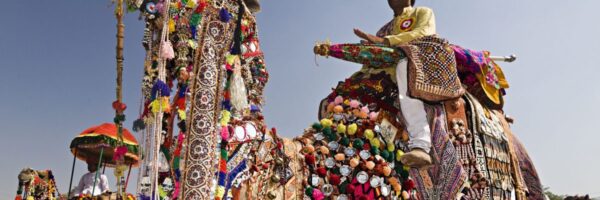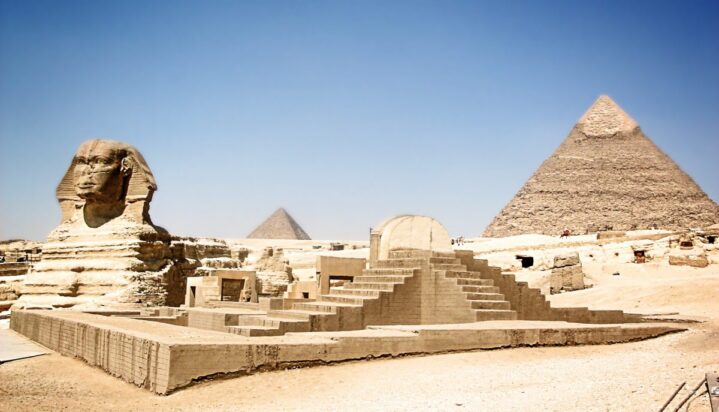
H.E. Mrs. Laila Ahmed Bahaaeldin the Egyptian Ambassador to Thailand
The Arab Republic of Egypt, is a country in the northeast corner of Africa, whose territory in the Sinai Peninsula extends beyond the continental boundary with Asia. Egypt is bordered by the Gaza Strip and Israel to the Northeast, the Gulf of Aqaba and the Red Sea to the East, Sudan to the South, Libya to the West, and the Mediterranean Sea to the North. Egypt has one of the longest histories of any country, tracing its heritage back to the 6th – 4th millennia BCE. Considered a cradle of civilisation, Ancient Egypt saw some of the earliest developments of writing, agriculture, urbanisation, organised religion and central government. Iconic monuments such as the Giza Necropolis and its Great Sphinx, as well the ruins of Memphis, Thebes, Karnak, and the Valley of the Kings, reflect this legacy and remain a significant focus of scientific and popular interest. Egypt’s long and rich cultural heritage is an integral part of its national identity, which has endured, and often assimilated, various foreign influences, including Greek, Persian, Roman, Arab, Ottoman Turkish, and Nubian. Egypt was an early and important centre of Christianity, but was largely Islamised in the seventh Century and remains a predominantly Muslim country, albeit with a significant Christian minority.
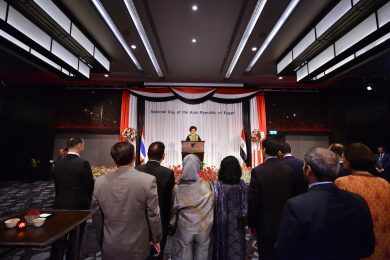 From the 16th to the beginning of the 20th Century,
From the 16th to the beginning of the 20th Century,
Egypt was ruled by foreign imperial powers: The Ottoman Empire and the British Empire. Modern Egypt dates back to 1922, when it gained nominal independence from the British Empire as a monarchy. However, British military occupation of Egypt continued, and many Egyptians believed that the monarchy was an instrument of British colonialism. Following the 1952 revolution, Egypt expelled British soldiers and bureaucrats and ended British occupation, nationalised the British-held Suez Canal, exiled King Farouk and his family, and declared itself a republic. In 1958 it merged with Syria to form the United Arab Republic, which dissolved in 1961. Throughout the second half of the 20th Century, Egypt endured social and religious strife and political instability, fighting several armed conflicts with Israel in 1948, 1956, 1967 and 1973, and occupying the Gaza Strip intermittently until 1967. In 1978, Egypt signed the Camp David Accords, officially withdrawing from the Gaza Strip and recognising Israel. The country continues to face challenges, from political unrest, including the recent 2011 revolution and its aftermath, to terrorism and economic underdevelopment. Egypt’s current government is a semi-presidential republic headed by President Abdel Fattah el-Sisi, which has been described by a number of watchdogs as authoritarian.
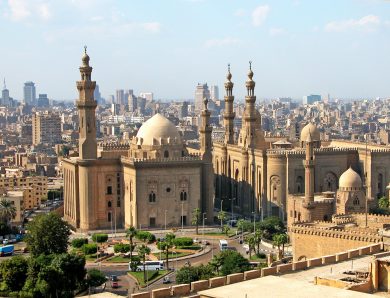 is the official religion of Egypt and Arabic is its official language. With over 95 million inhabitants, Egypt is the most populous country in North Africa, the Middle East, and the Arab world, the third-most populous in Africa and the fifteenth most populous in the world. The great majority of its people live near the banks of the Nile River, an area of about 40,000 square kilometres (15,000sqm), where the only arable land is found. The large regions of the Sahara desert, which constitute most of Egypt’s territory, are sparsely inhabited. About half of Egypt’s residents live in urban areas, with most spread across the densely populated centres of greater Cairo, Alexandria and other major cities in the Nile Delta. The sovereign state of Egypt is considered to be a regional power in North Africa, the Middle East and the Muslim world, and a middle power worldwide. Egypt’s economy is one of the largest and most diversified in the Middle East, and is projected to become one of the largest in the world in the 21st century. In 2016, Egypt overtook South Africa and became Africa’s second largest economy. Egypt is a founding member of the United Nations, Non-Aligned Movement, Arab League, African Union, and Organisation of Islamic Cooperation.
is the official religion of Egypt and Arabic is its official language. With over 95 million inhabitants, Egypt is the most populous country in North Africa, the Middle East, and the Arab world, the third-most populous in Africa and the fifteenth most populous in the world. The great majority of its people live near the banks of the Nile River, an area of about 40,000 square kilometres (15,000sqm), where the only arable land is found. The large regions of the Sahara desert, which constitute most of Egypt’s territory, are sparsely inhabited. About half of Egypt’s residents live in urban areas, with most spread across the densely populated centres of greater Cairo, Alexandria and other major cities in the Nile Delta. The sovereign state of Egypt is considered to be a regional power in North Africa, the Middle East and the Muslim world, and a middle power worldwide. Egypt’s economy is one of the largest and most diversified in the Middle East, and is projected to become one of the largest in the world in the 21st century. In 2016, Egypt overtook South Africa and became Africa’s second largest economy. Egypt is a founding member of the United Nations, Non-Aligned Movement, Arab League, African Union, and Organisation of Islamic Cooperation.
Expat Life had the pleasure to sit down with H.E. Mrs.Laila Ahmed Bahaaeldin the Egyptian Ambassador to Thailand and ask her about her posting to Thailand, her life and her impressions and observations of Thailand.
When did you arrive in Thailand?
I arrived in Thailand on the 16th of January 2018.
Where did you arrive from?
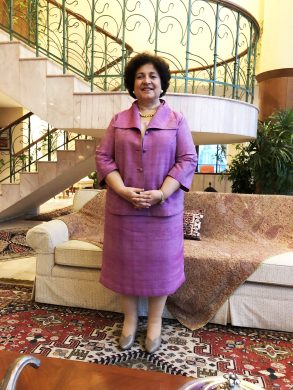 I came directly from Cairo the capital. I was assistant Minister for Human Rights. It’s our standard policy in order not to lose touch with our country, to go back home between posts
I came directly from Cairo the capital. I was assistant Minister for Human Rights. It’s our standard policy in order not to lose touch with our country, to go back home between posts
Where were you born?
I was born in Cairo, Egypt where I was raised. This is where I went to school and university.
When did you decide to become a diplomat?
Ever since I was young I was curious about the outside world. So my first instinct was to want to be a journalist. I wanted to cover events, get to know people in far away places. I worked for a year after graduation as an assistant to Newsweek magazine’s bureau chief in Cairo. At the time I didn’t know what it meant to be a diplomat then I had the chance to assist in covering negotiations pertinent to my country. I liked the challenge so I decided to take the exam to join the Ministry of Foreign Affairs. They were over two thousand people applying and I was really surprised to find that I passed and had been accepted. By that time I had realised that I am much better suited to represent and promote my country and to negotiate in its favour.
Do you have any other diplomats in your family?
No, but my nephew is now interested in becoming one. I consider that extremely flattering.
How do you find Thailand today and have you encountered any obstacles since arriving?
I found that Thailand is more enhanced in every aspect before arriving. It is a country that has already achieved a lot of its potential and still has much more room to grow. Millions of people come every year for a reason. Thailand lacks nothing. As for me I have encountered no obstacles at all. I was extremely well received by officials, my countryfolk and by the general public and the Thai people that I have come into contact with. They are extremely helpful and friendly and always greet me with a smile. I do wish however that I could speak Thai though!
Are there any similarities between Egypt and Thailand?
There are many. Friendly people, great food, a rich culture, long history, I can go on and on…
Do you have family and if so where are they?
I have one son. He is 30 years old and is currently working in Portugal. He is the son of a diplomat that has lived in many countries so he considers himself a citizen of the world – an internationalist.
How do you view your role in Thailand – and what is the average day?
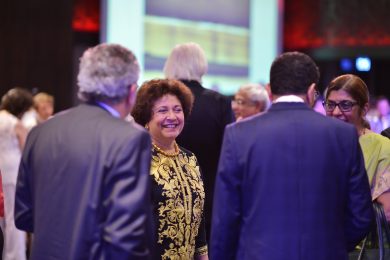 Everyday is a crazy day with its new surprises. We are a small team and there is something happening everyday either to follow or deal with. In addition to that there is a very active social scene in Bangkok and also a very rich cultural life that I enjoy following.
Everyday is a crazy day with its new surprises. We are a small team and there is something happening everyday either to follow or deal with. In addition to that there is a very active social scene in Bangkok and also a very rich cultural life that I enjoy following.
As with every Ambassador, I assume you have some goals you really would like to reach/fulfil before you leave Thailand. What are they?
We have an interesting cooperation in the field of education. We also have trade exchanges that could increase. But where I hope to make a real improvements is in its cultural cooperation. There is so much scope and plenty to be done.
Have you been travelling around in Thailand?
Yes I have been to many places in Thailand and was impressed by the variety. The only constant is how nice people are and of course the natural beauty and always great food. To name a few. Phuket, Chiang Mai, Chiang Rai, Pattaya, Ayutthaya…..
What is your favourite destination, so far, in Thailand?
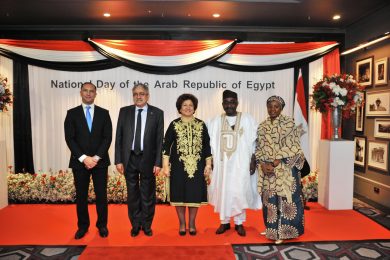 Every place has its character and its beauty. I love Chiang Mai although I don’t have one single favourite destination in Thailand. I have three favourite destinations: 1) Sukhothai. I have already visited three times – its historical park, as well as the one in Si Satchanalai district, Sukhothai Province. The park covers the ruins of Si Satchanalai and Chaliang; 2) The Valley of Pai; and 3) Khaolak, located just an hour’s drive north of Phuket Island on the gorgeous Andaman seaboard, it is one of Thailand’s most peaceful resort destinations and renowned for the nature and for the diving.
Every place has its character and its beauty. I love Chiang Mai although I don’t have one single favourite destination in Thailand. I have three favourite destinations: 1) Sukhothai. I have already visited three times – its historical park, as well as the one in Si Satchanalai district, Sukhothai Province. The park covers the ruins of Si Satchanalai and Chaliang; 2) The Valley of Pai; and 3) Khaolak, located just an hour’s drive north of Phuket Island on the gorgeous Andaman seaboard, it is one of Thailand’s most peaceful resort destinations and renowned for the nature and for the diving.
When you have a day off, what do you prefer to do? Do you have any special hobbies?
Any day off I usually start by checking if there is any art exhibition that I can see or maybe a good film. I have discovered a wealth of interesting Asian movies and an independent cinema production house that one can see.
How many of Egyptians are living in Thailand? When and why did Thailand become a desirable destination for your people?
The Egyptian community is not a large group – yet, but we have many Egyptian tourists and most of them either go to Phuket or come to visit the sights in Bangkok. Thailand has all the ingredients of a great tourist destination.
Do your country and Thailand have any exchange programmes for students today?
Every year we have many Thai students who come to study in Egypt. They go to Al Azhar University. It’s is one of the oldest universities in the world. In addition to that we also offer scholarships to Thai students.
If you could choose your next destination, where would you like to go?
I have spent most of my working life in Europe. This is the first time in Asia. It is an amazing discovery for me so far so I would love to remain in the region.
Do you regularly meet up with your community?
We meet them as a group when there is an occasion otherwise they know that every member of the Embassy is available for them at all times. The Embassy is their home away from home. Or at least that’s how I try to make it.
What do you believe is your most important task as Ambassador?
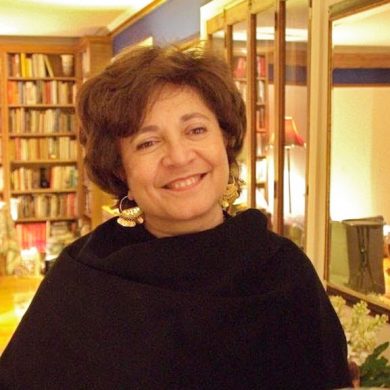 To represent my country as best as I can. To show its variety and its richness. Every country somehow becomes constricted by a stereotype or is limited with a fixed image. For Egypt it’s the great Pyramids and the Sphinx – the most famous structures from ancient Egypt. But I want to remind everyone that after the great pyramids and the Sphinx we had a Hellenistic era, then a Christian era followed by the Moslem era and finally today. Each era did not erase its predecessor. They all live side by side and this is witnessed by the wealth of monuments and artefacts that still endure and by the characteristics of the Egyptian people who are the amalgams of this rich and long history.
To represent my country as best as I can. To show its variety and its richness. Every country somehow becomes constricted by a stereotype or is limited with a fixed image. For Egypt it’s the great Pyramids and the Sphinx – the most famous structures from ancient Egypt. But I want to remind everyone that after the great pyramids and the Sphinx we had a Hellenistic era, then a Christian era followed by the Moslem era and finally today. Each era did not erase its predecessor. They all live side by side and this is witnessed by the wealth of monuments and artefacts that still endure and by the characteristics of the Egyptian people who are the amalgams of this rich and long history.
What else would you like the expat community to know about your efforts?
I don’t think of my role as an effort but as a privilege. I am really having a great time at my work and I am always very happy from the number of people who meet me and tell me that Egypt is one of their dream destinations. All I can hope and say to them is “make your dream come true – come and visit our wonderful country, you will be made most welcome“.



